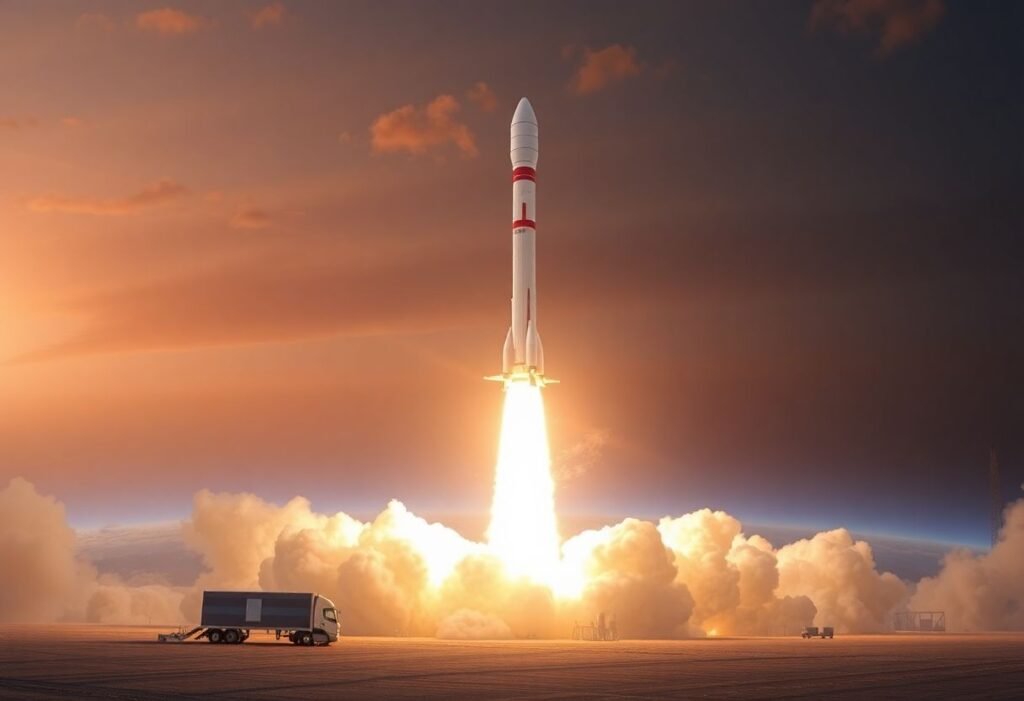The excitement surrounding space exploration is at an all-time high, especially with advancements in rocket technology. The recent flight of China’s Nebula-1 rocket booster highlights both the potential and challenges faced in creating sustainable reusable space vehicles.
Recent Developments in Rocket Reusability
The Nebula-1 reusable rocket booster, developed by a pioneering Chinese aerospace company, recently took a significant step forward in rocket technology. On September 22, 2024, this rocket was launched into high altitude and demonstrated impressive vertical flight capabilities. However, during its attempted powered landing, the booster encountered difficulties, resulting in a crash landing. Despite this setback, the test flight represented crucial data for engineers to refine future launch systems, emphasizing the importance of iterative design in aerospace innovation.
The Importance of Controlled Landings
Controlled landings are critical for the success of reusable rockets, significantly impacting operational costs and mission efficiency. The Nebula-1’s recent experience illustrates the high stakes involved in perfecting landing technologies. Because recoverable boosters can potentially be used multiple times, any improvements in landing accuracy directly contribute to decreased expenses and enhanced sustainability in space missions. Learning from mistakes, such as the recent landing incident, is vital for developing more reliable rocket systems.
China’s Growing Role in Space Exploration
China has been rapidly advancing its space exploration initiatives, with projects that rival those of other spacefaring nations. The Nebula-1 is a testament to China’s commitment to pushing the boundaries of rocket technology. As one of the primary leaders in the space race, China’s emerging capabilities not only foster national pride but also contribute to global advancements in aerospace engineering. Furthermore, the ongoing investments in research and development signify China’s determination to position itself as a dominant player in space exploration.
Potential Impact on Future Missions
The challenges encountered during the Nebula-1 landing attempt serve as a learning opportunity for future missions. By analyzing the data gathered from this incident, engineers can implement enhancements to increase the likelihood of successful landings in subsequent tests. The evolution of reusable rocket technology will play a crucial role in the feasibility of deeper space missions, where landing and returning from various celestial bodies will be paramount. As technologies continue to evolve, the space exploration landscape is poised for transformative breakthroughs.
Global Collaboration in Space Technology
The quest for advancements in space technology is not confined to a single nation. International cooperation can lead to shared knowledge and resources, thereby accelerating innovation. Various countries are forming partnerships to address common challenges encountered in rocketry and space missions. Collaborations between nations can contribute to the successful development of reusable rocket technologies, ultimately benefiting all participants. By sharing experiences from projects like Nebula-1, the aerospace community can foster an environment of collective advancement, where knowledge is exchanged, and breakthroughs are achieved more rapidly.
The Future of Space Exploration
As we look to the future, the challenges facing reusable rocket technology will undoubtedly lead to continued innovation. The Nebula-1 incident is just one of many steps on the path toward reusable rockets that can achieve high reliability and sustainability. With the help of continuous testing, international collaboration, and advancements in technology, the coming years should bring significant achievements in space exploration. The vision of regular space access for exploration and scientific research is becoming more attainable, promising an exciting future for all involved in the quest for knowledge beyond our planet.
Disclaimer: The information included in this article is solely for informative purposes. The performance and results of ongoing projects may vary and are subject to changes based on operational strategies and external variables.





















